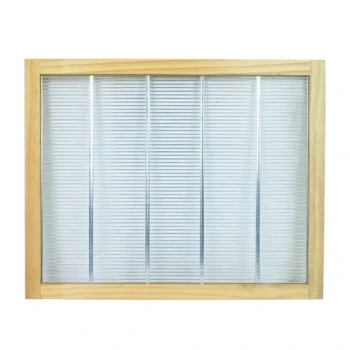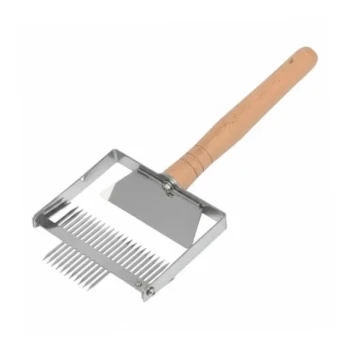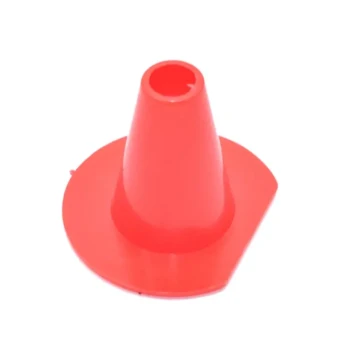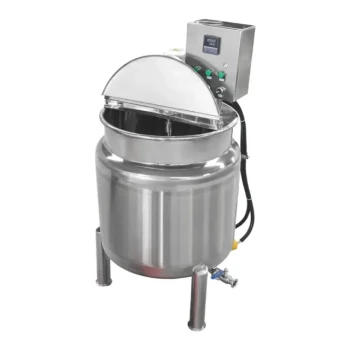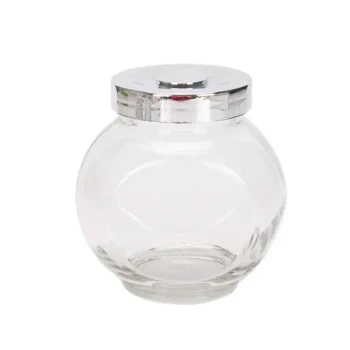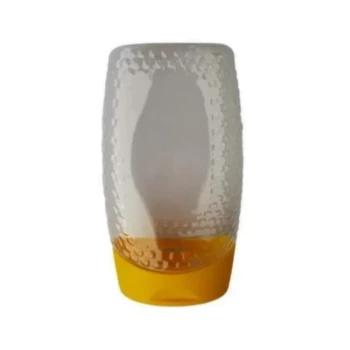Deciding whether to use a queen excluder is a common crossroads for beekeepers, and the right choice depends entirely on your management goals, the scale of your operation, and the specific behavior of your colony. It is a tool designed to enforce a separation between the queen's brood nest and the honey storage supers, but it is not a required piece of equipment for a successful hive.
The queen excluder is a management tool that trades potential hive disruption for beekeeper efficiency. The central decision is whether the convenience of brood-free honey supers and an easily located queen outweighs the risk of creating a barrier that may slow down your bees and interfere with their natural workflow.
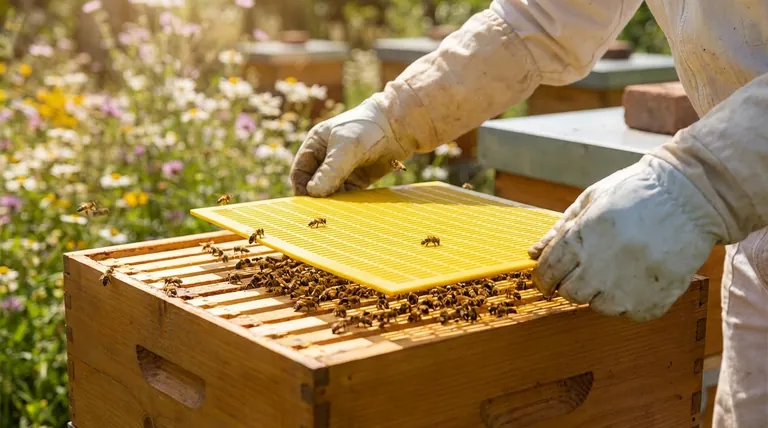
The Primary Case for Using an Excluder: Efficiency and Control
For many beekeepers, particularly those with multiple hives, the benefits of an excluder are centered on creating a predictable and highly manageable system.
Streamlined Honey Harvesting
A queen excluder guarantees that the frames in your honey supers contain only honey, not eggs or developing larvae.
This allows for the rapid removal of entire boxes for extraction without the need to inspect each frame individually for brood, a significant time-saver in commercial operations.
Simplified Queen Management
By confining the queen to the lower brood boxes, you always know where to find her.
This makes tasks like routine inspections, disease checks, or re-queening much faster and less disruptive to the entire colony.
Cleaner Honey and Wax
Frames that have never contained brood are free from leftover cocoons and have significantly less pollen contamination.
This results in cleaner honey and allows for the recovery of higher-quality wax from the cappings, which is valuable for other uses.
Improved Pest and Colony Control
Preventing the queen from laying eggs in honey supers can reduce the attraction for pests like wax moths, which target frames containing brood remnants.
It also provides a clear boundary for the brood nest, helping you manage the overall size and temperament of the colony more effectively.
The Argument Against Using an Excluder: Natural Hive Dynamics
Opponents of excluders argue that they impose an unnatural barrier on the colony, which can lead to unintended consequences that may hinder hive productivity.
Creating a "Honey Barrier"
Some colonies are reluctant to pass through the excluder, viewing it as a barrier.
This can cause bees to store honey in the brood chamber instead of the supers, creating a "honey-bound" brood nest that restricts the queen's laying space and potentially reduces the total honey harvest.
Potential for Reduced Productivity
The physical act of squeezing through the narrow slots of an excluder can be hard on worker bees, potentially causing minor wing damage over time.
This extra effort and wear can slightly reduce worker longevity and the overall foraging efficiency of the colony. An upper entrance placed above the excluder can help mitigate this by giving foragers a more direct route.
Colony-Specific Needs
Not every colony requires an excluder. Many queen lines, particularly those from locally-bred stock, are naturally inclined to keep a compact brood nest.
Forcing an excluder on a well-behaved colony is an unnecessary intervention that provides little benefit and may simply get in the way.
Understanding the Key Decision Factors
Your final decision should be based on a clear-eyed assessment of your specific context, not on a rigid rule.
Your Beekeeping Philosophy
Are you aiming for maximum efficiency and honey yield, or do you prioritize a more natural, hands-off approach? An excluder is a tool for control, which may or may not align with your goals.
Scale of Your Operation
A commercial beekeeper with dozens or hundreds of hives gains immense value from the time saved during honey removal. A hobbyist with one or two hives may find that inspecting a few extra frames is not a significant burden.
Colony Strength and Genetics
Strong, populous colonies are far more likely to move through an excluder without hesitation. Furthermore, some colonies with very prolific queens may overproduce brood, making an excluder a valuable tool for ensuring honey storage space.
The Season and Hive Strength
The decision isn't static. You might use an excluder during a strong summer nectar flow but remove it during other parts of the year to give the queen more room and encourage population growth.
Making the Right Choice for Your Hive
Ultimately, the queen excluder is an optional tool. Base your decision on observation and a clear understanding of your priorities.
- If your primary focus is maximizing efficiency and speed: Using a queen excluder is almost certainly the correct choice, especially for larger operations.
- If your primary focus is natural beekeeping with minimal intervention: Avoid the excluder and rely on careful hive observation to manage the brood nest.
- If you are unsure or have a new colony: Consider forgoing the excluder initially to observe your queen's laying patterns before deciding if one is necessary.
The best approach is to observe your bees' behavior and choose the tool that best supports both their productivity and your management style.
Summary Table:
| Factor | Pro-Excluder | Anti-Excluder |
|---|---|---|
| Honey Harvesting | Guarantees brood-free honey supers for faster extraction. | Risk of creating a "honey barrier," potentially reducing yield. |
| Queen Management | Confines queen to brood box for easy location and inspection. | Allows for more natural, unrestricted colony movement. |
| Hive Health | Can help control pests like wax moths and manage brood nest size. | Avoids potential stress and wear on worker bees from the barrier. |
| Best For | Commercial operations & beekeepers prioritizing efficiency and control. | Hobbyists & natural beekeepers favoring minimal intervention. |
Ready to choose the right equipment for your apiary's success?
At HONESTBEE, we supply high-quality beekeeping supplies and equipment—including durable queen excluders—to commercial apiaries and distributors through our wholesale-focused operations. Our products are designed to enhance your hive management, whether your priority is maximum honey yield or supporting natural colony dynamics.
Contact our expert team today to discuss your specific needs and discover how HONESTBEE can support the productivity and health of your operation.
Visual Guide
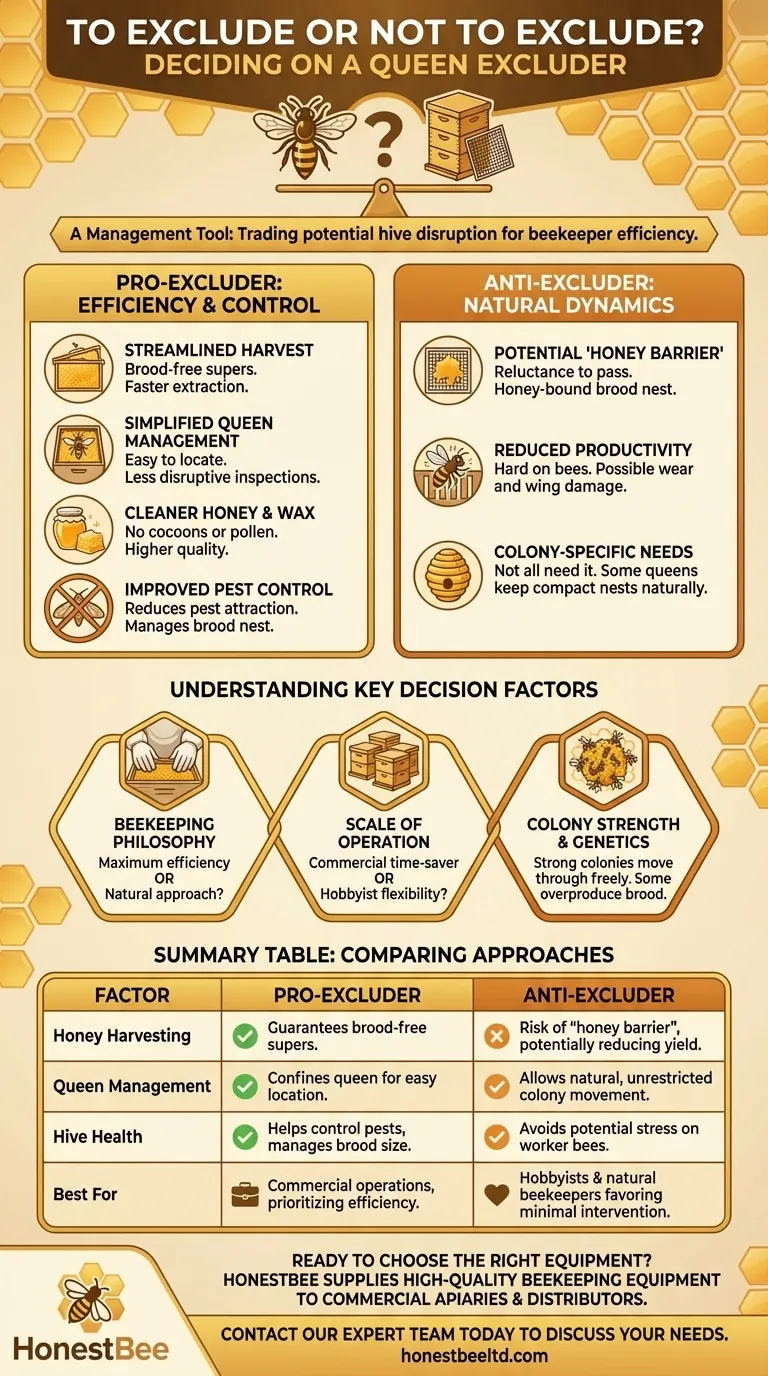
Related Products
- Professional Plastic Queen Excluder for Modern Beekeeping
- High Performance Plastic Queen Excluder for Beekeeping and Apiary Management
- Premium Wood Framed Metal Wire Queen Bee Excluder
- Plastic Queen Bee Excluder for Bee Hive Wholesale
- Metal Queen Bee Excluder for Beekeeping
People Also Ask
- How can a queen excluder affect worker bees? Minimize Physical Wear & Optimize Hive Performance
- What is the primary function of the queen excluder cage? Key Role in Royal Jelly Production Efficiency
- How does a Queen Excluder ensure honey quality? Precision Tools for Pure, Commercial-Grade Honey Production
- How can the problem of bees being reluctant to pass through a queen excluder be minimized? Boost Honey Super Acceptance
- What is the functional and aesthetic purpose of Zinc Lattice in specialized beekeeping? Enhance Hive Health and Design
- Why is a queen excluder essential for drone brood removal? Boost Your Mite Management and Honey Purity
- What is the function of a queen excluder in a Langstroth hive? Maximize Honey Harvests & Purity
- Why is a queen excluder considered an essential component in modern hive technology? Boost Honey Purity & Efficiency


